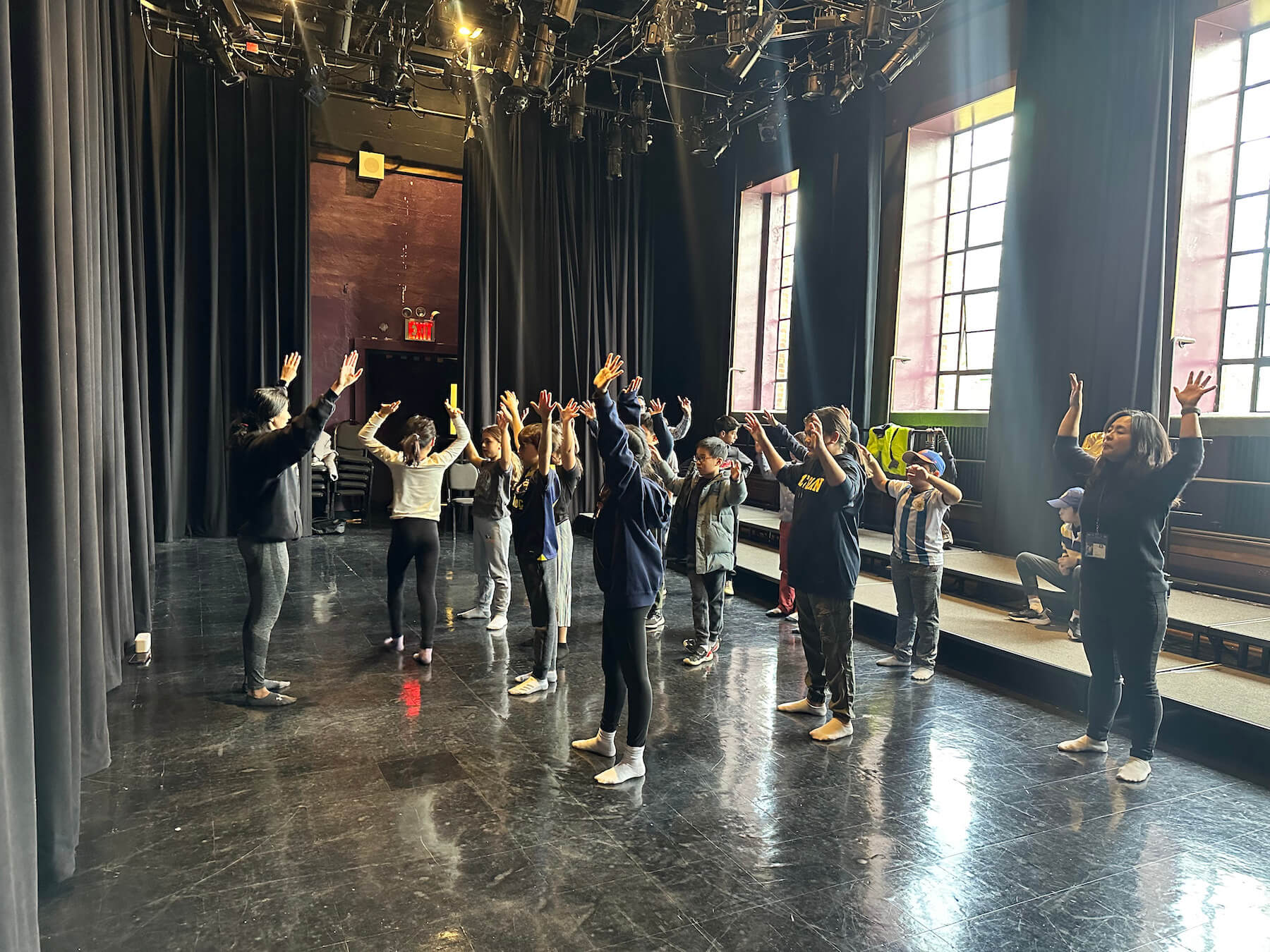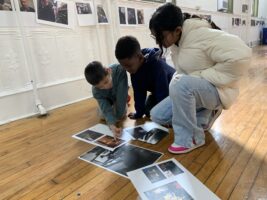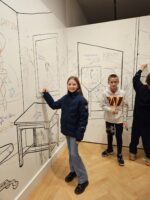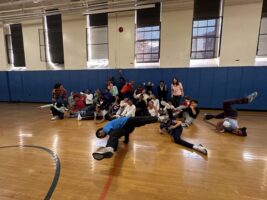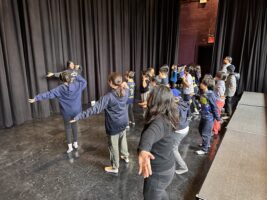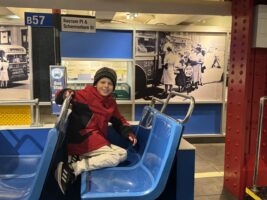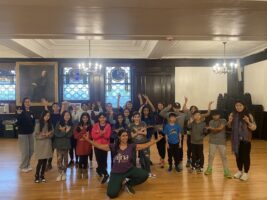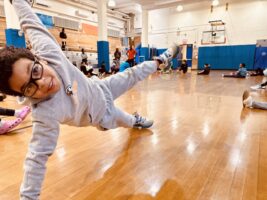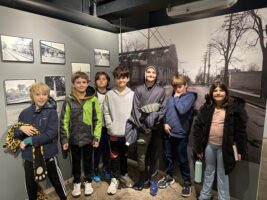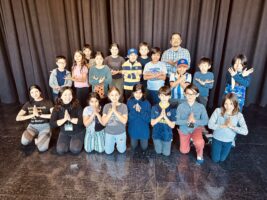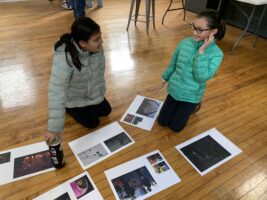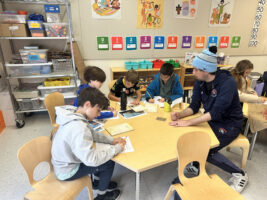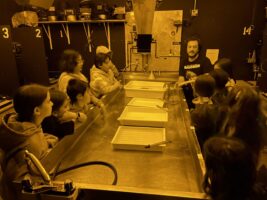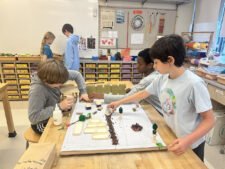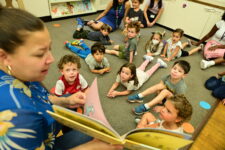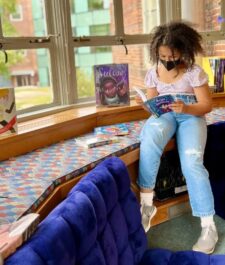At the Ethical Culture Fieldston School, learning always has a clear purpose. Our students are challenged to be daring thinkers, to be good and kind, to be competent and skillful, to be agents of positive change, and to be engaged with the world around them.
One decade ago, ECFS was a leader in the introduction of topics relating to identity and belonging to older students in the lower divisions. Known as the Conversations about Race, Ethnicity, Ethics, etc. (CARe) program, our educators recognized that learning to navigate what racial identity means in the context of society is an important tool for students growing up and living in a diverse world.
Research shows that by age three, children are actively involved in sorting their world and are keenly aware of differences. Supporting children’s awareness of each other’s similarities and differences and connecting them positively to their own identity is essential in helping them become confident, compassionate, and healthy young adults.
In 2014, Fieldston Lower Ethics Teacher Laura Stewart and several other faculty members and administrators were determined to design programming that created safe spaces for students to begin building skills around identity development, racial literacy, and cultural competency. They knew this knowledge would set ECFS students up for success in future social interactions.
“The faculty spent a lot of time collaborating while building the program,” Stewart shares. “We engaged in the lessons we hoped to eventually do with students with each other. And at that point, we had to be comfortable not knowing everything. There would be moments of tension where we would need to put a pin in something, do our research, and then come back together. We realized if we could navigate conversations around race with other adults, we could support our students as they had these conversations.”
A priority for Stewart was ensuring that CARe programming was embedded into daily life at ECFS. “Everybody was going to be having conversations about race; it was going to be a space to build a common language and have common experiences, but within a space where you share an affinity with the other students in the room.”
Like any program committed to making a lasting impact, CARe has evolved since its founding 10 years ago. The program’s success and longevity are rooted in its hands-on experiences and responsiveness to our students’ changing needs — not to mention the dedication and leadership of our faculty CARe facilitators and Ethical Culture and Fieldston Lower DEI Leads Shannon Matlovsky and Timothy Garcia.
When first introduced to the CARe program in 3rd and 4th Grade, students begin by learning vocabulary surrounding race, ethnicity, intersectionality, and identity. They practice identifying microaggressions in the safe spaces of their CARe affinity groups, practice how to apologize, and learn that it’s okay to make mistakes – called “oops” and “ouch” moments in the context of CARe. Each year, the program tackles a different theme in a multimodal format while always centering joy.
As students continue in the CARe program, they build upon these fundamentals and safely wrestle with more complex ideas. “We know that bias-based beliefs make their way into different systems, structures, policies, and practices in our society. This is really where the experiential approach becomes important to help our students understand bigger-picture concepts,” explains Matlovsky.
What often sets our School apart is our teachers’ dedication to experiential, project-based curricula that challenge students to not only think critically, but to put their thinking into action. “For instance, we complete a tower-building exercise where we split students into groups and give them instructions to build the tallest, strongest tower possible, but we give each group different materials to build their towers. While all groups have paper, some paper is sturdier than others,” says Matlovsky. This helps make complex issues such as systemic inequity more tangible for young students. No matter how hard everyone is working to build their tower, the outcomes or success may depend on the quality of the resources they had access to in the first place,” she adds.
Earlier this month, 3rd–5th Grade students at Fieldston Lower and 4th–5th Grade students at Ethical Culture spent a day immersed in unique hands-on experiences to celebrate 10 years of the CARe program. In their affinity groups, students either journeyed to a museum or enjoyed a workshop on campus. These experiences were carefully curated to allow students to explore their racial and ethnic identities and, more importantly, foster a sense of pride, understanding, and joy.
As part of the day, students from our two lower divisions came together in their affinity groups for shared experiences and discussion groups. The Black diaspora and Latine CARe groups enjoyed a visit from the HUSH Dance Tours group, during which they engaged in a breakdancing workshop, learned about the history of hip hop and its cultural impact, and connected with one another through dance. Later, in discussion groups, students engaged in a meaningful conversation with visitors from the New York Historical Society about the role of immigration in founding New York City.
The white CARe groups visited the New York Transit Museum to explore the intersectionality of mass transit, art, and activism, and the multiracial CARe group explored an exhibit at the Bronx Documentary Center (BDC) that featured films, photography, and animation created by New York City teenagers of different racial backgrounds. Simultaneously, students in the Jewish CARe group visited the Center for Jewish History to view the “Laboratory of the Jewish Comics Experience” exhibit.
CARe’s groupings change as the demographics of our student body shift, too. “While CARe has common curricula, we also try to create spaces where we address the specific needs of our student body, which can shift from year to year,” says Garcia. For example, after listening to feedback from the parent/guardian community in both divisions, the CARe team identified the need for a group specific to South Asian identity because the Asian American Pacific Islander (AAPI) label encompasses many different identities and ethnic backgrounds.
As part of the shared experiences this month, the Ajna Dance Company — an organization specifically seeking to preserve South Asian dance — held a workshop for our AAPI CARe group to facilitate a dance lesson. ECFS students learned traditional dance moves and even assembled an entire choreographed dance that they performed as a group at the end of the workshop session.
It was a jam-packed day of hands-on learning, and students went home that day with many takeaways and exciting anecdotes to share with their families. “My daughter loved going to the Bronx Documentary Center,” shares one Fieldston Lower parent. “She really enjoyed getting to see a dark room and the teen exhibit. The experience definitely inspired her, and she’s excited to submit a photograph when she turns 11!” Another parent shared: “My son is half Jewish, and we are so grateful he has the opportunity to explore this part of his identity at school,” a mother says. “He came home so excited to tell us about the Jewish origins of superheroes and everything he had learned at the museum. He wants to go back as soon as possible so he can share the experience with his siblings.”
As we look back on a decade of CARe at ECFS, there are many proud moments of how this program has evolved with society and the needs of our community. There are also many moments that revolve around our students’ sense of pride, ownership, and their contributions to the program. “I love it when learning is internalized, but I especially love it when students feel proud of their identity. Even when discussing difficult things, CARe has really offered us this space where we can support each other and pick each other up,” shares Matlovsky.
Garcia adds, “My favorite moments are always when our students come up with new ideas on their own. This year, our Black diaspora CARe group came up with an idea to collect recipes to preserve a bit of their family cultures. These are things that aren’t a planned part of our curriculum, but the students are inspired to do it, so we make room for that.”
The commitment of our faculty to the continued growth and evolution of this transformative program promises to shape generations of mindful individuals who will undoubtedly leave a lasting impact on the world.
Original CARe faculty leader Laura Stewart shares, “When we were first founding CARe, it was actually just called Conversations about Race, with the acronym CAR. One of our students said, ‘CAR isn’t a great acronym. We are talking about these things because we care about each other. If we add an “e,” we can call the program CARe. The “e” could represent ethics, empathy, ethnicity, engagement, and so many other things.’ That little ‘e’ has a lot of meaning. I am really proud of that student for contributing to CARe in that way — that’s exactly the type of contribution we are encouraging our students to make to the world.”
If you have questions or would like to learn more about our CARe program, please reach out to deidepartment@ecfs.org.
